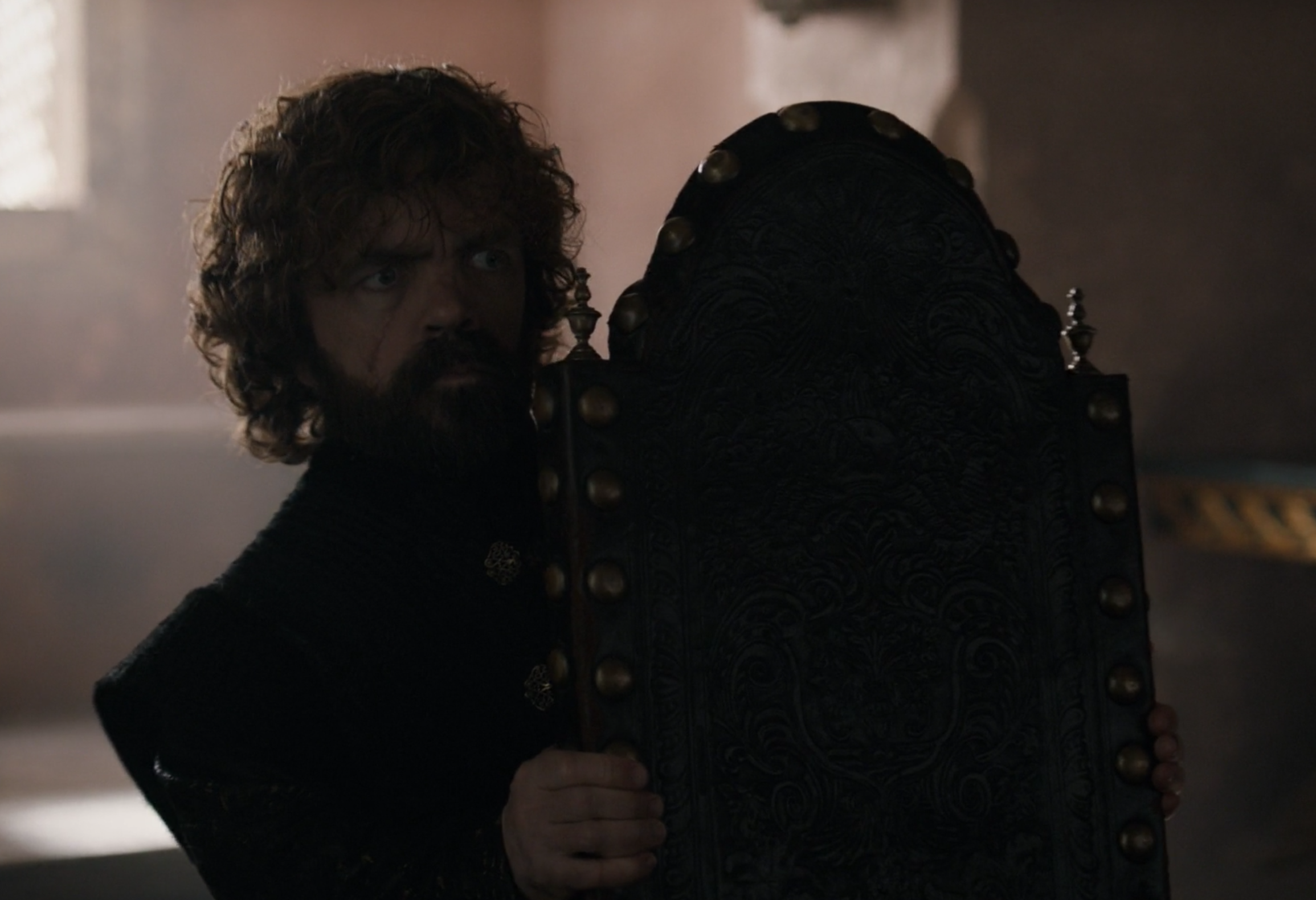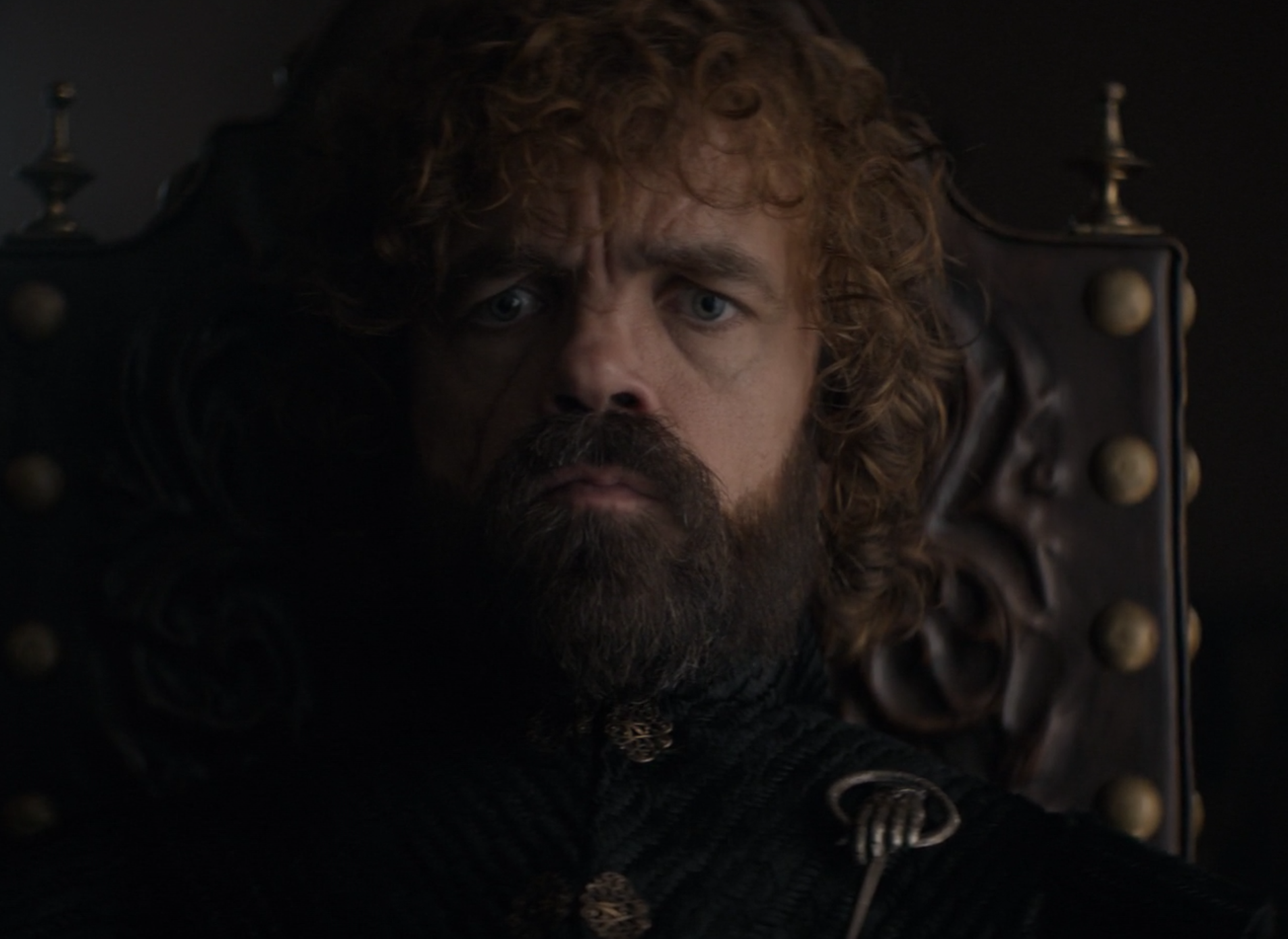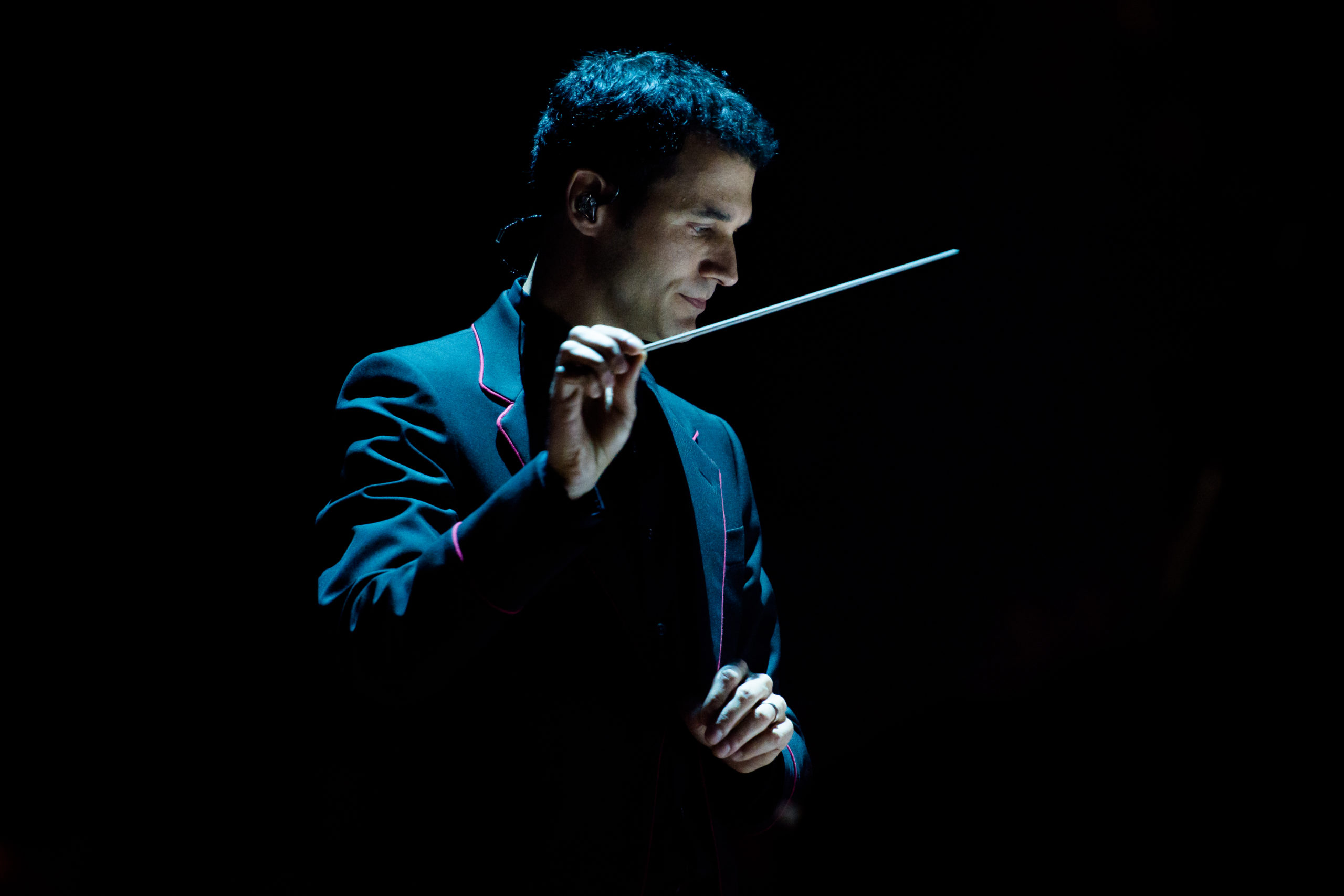In the third episode of the third season of Game of Thrones, there is a memorable scene: a Small Council meeting presided over by Tywin Lannister. Tyrion Lannister shows up late and presumably drunk. He drags one of the big chairs in the then-new Small Council room to the opposite end of the table from his father, casting a blank, taunting look at him while the chair squeaks nastily on the floorboards.
Looking back, the scene almost feels like it comes from a different show. For one thing, every person in the scene—which also includes Cersei Lannister, Littlefinger, Varys, and Grand Maester Pycelle—exudes so much personality, all without speaking. It’s hard to remember now, but these were all, at the time, great and multifaceted roles all played by incredible character actors. The comedy in the scene is not only facilitated by Tyrion’s insouciance, but by Tywin’s withering gaze: Charles Dance is always drily hilarious even at his most vile and imposing. Humor, pathos, brutality, and mythic significance are all in play in this tiny scene. Tyrion’s first line, too, reminds us that Thrones’ dialogue didn’t always tell you something you already knew and often contributed meaningfully to the charm of the characters: “Intimate, lovely table. Better chairs than the old Small Council chamber, and conveniently close to your own quarters. I like it.” Eventually, all those concerns became secondary to the show’s increasingly panoramic plot.
Half of these council members were dead before the show’s final eighth season even started, and they are just a fraction of the legion of well-rendered, compellingly contradictory characters that the show has wiped out over the past near-decade. Most of the characters we are left with at the end of the series are among its most predictable and irritating. If they aren’t, they have become so as George R.R. Martin’s books have gotten farther in the show’s rear view, or as they have been given fewer and fewer meaningful things to do (see Cersei and Varys, even despite the creators’ poor, last-ditch attempts). As if to highlight the point, showrunners David Benioff and D.B. Weiss ultimately rewarded perhaps the show’s most tedious and humorless personality, Brandon Stark, in an implicit celebration of precociousness, pomposity, poor social skills, and weaponized nerdiness. We can only relish the fact that he was not allowed to make a speech, and recall some insufferable valedictorian crowing at the podium at high school graduation.
https://youtube.com/watch?v=scxmOWOHYjQ
While the dourest and most pretentious part of the Thrones mythology was getting its undeserved due, Maesters Benioff and Weiss attempted to slot in examples of all the tonalities that defined the show over the course of its eight seasons. There were impotent attempts at dramatic green-screen vistas, shocking murders, humor, and even the rarest of GoT birds: cryptic and symbolic gestures. The episode’s sole attempt at creating any kind of wholly subjective moment came in one of the finale’s many overlong segments featuring Tyrion, and is in conversation with Season 3’s chair-dragging moment. It occurs in a miraculously (read: nonsensically) restored Red Keep: Tyrion, who has been promoted from political prisoner to Hand, straightens out the Small Council chamber’s tall old chairs, which were somehow not been burned to kindling by Drogon breath. The camera follows him patiently as he pushes each chair up against the table. Then, the members of the new and all-too-cute Small Council—Brienne of Tarth, Davos Seaworth, a well-swaddled Samwell Tarly, and, for some reason, Bronn—storm in and rudely disorder Tyrion’s arrangement.
One might call this one of two interesting tonal choices made in the show’s finale, in which the most unpredictable twists felt almost expected because of their uninspired realization. The other: Edmure Tully, a character many passive viewers would have been totally justified in forgetting about, bloviating pathetically about why he should be the new king of Westeros, only to be politely shushed by Sansa. Neither this moment or Tyrion’s is successful, either dramatically or comedically. But both reside in a gray area, which is something Benioff and Weiss are not normally fans of—in these cases, in an uncomfortable space somewhere between arcaneness and humor.
The chair moment, however, stands out particularly, and serves as a final awkward indication of how far afield the HBO version of Game of Thrones ended up from where it began. It’s a scene that fits the mold of an prestige-TV finale, seemingly playing towards a final moral, or underscoring a governing theme. Why do we never figure out what happens to Tony Soprano at the diner? What does it say about both America and Don Draper that he created the most popular ad of the 1970s? A good finale must have a scene or element that looms large without being spelled out—breaking outside of the confines of literal plot significance or posing a final riddle. Here, Benioff and Weiss force our faces to the fire, demanding that we wonder why Tyrion moving these chairs is significant and wrangle with its implications, whatever we believe them to be.
 Was this really all Game of Thrones’ grand conclusion had to offer up in terms of open-ended metaphors? Masochistically, we can debate about what Benioff and Weiss might be asking us to ponder here. Is just government possible? Can contrasting personalities co-exist to make a better world, or does the desire for individual power or recognition always pervert collective leadership? Just think about what happened to those chairs, despite Tyrion’s best efforts! Who can predict or control the future? Maybe the war will never be over. Maybe someone will always be trying to steal the proverbial throne, even if the chair itself has been smelted (in perhaps the worst moment of the series).
Was this really all Game of Thrones’ grand conclusion had to offer up in terms of open-ended metaphors? Masochistically, we can debate about what Benioff and Weiss might be asking us to ponder here. Is just government possible? Can contrasting personalities co-exist to make a better world, or does the desire for individual power or recognition always pervert collective leadership? Just think about what happened to those chairs, despite Tyrion’s best efforts! Who can predict or control the future? Maybe the war will never be over. Maybe someone will always be trying to steal the proverbial throne, even if the chair itself has been smelted (in perhaps the worst moment of the series).
On the other hand, perhaps the moment is not meant to be multivalent. Perhaps it’s just Benioff and Weiss’ nostalgic tribute to that first Tyrion scene, or an indication of how far his character has come since then. Once a drunken ne’er-do-well, Tyrion now takes comfort in decorum as opposed to relishing disrupting it as much as possible. He uses his intellect to try to make a better world rather than attempting to escape from its cruelty and arbitrariness by whatever means necessary. If that’s the case, the scene is even worse, considering that he’s been doing all this, increasingly redundantly, for several seasons.
Whatever Tyrion futzing with the big chairs does mean, I imagine we won’t be thinking about it for as many more hours as Benioff and Weiss might wish. It’s hard to think of a less effective poetic moment in a finale of a popular dramatic television show, especially one people have taken as seriously as Game of Thrones. But if this miscalculation comes as a surprise (or anything else in the episode for that matter), you’ve probably been extending this show a lot more goodwill than it deserves. One only need compare Tyrion’s first big chair moment to his second to realize how charmless and mystique-free Game of Thrones ultimately became, not only in its widely maligned final hours, but a good long time before that.





